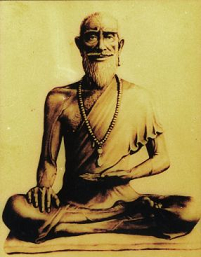JäVAKA KOMâRABHACCA

Jãvaka Komàrabhacca was the Buddha's personal physician and the father of Buddhist medicine. Tradition says he was the son of a prostitute of Ràjagaha. After his birth he was put in a basket and thrown on a rubbish heap from where he was rescued by Prince Abhaya and adopted by him. An abandoned child would usually be fairly quickly eaten by dogs and crows but because he was still alive found (jãvati) he was called Jãvaka. The second part of his name is probably derived from kaumàrabhçtya, the Sanskrit term for obstetrics and pediatrics. When he grew up he was sent to Takkasilà (modern Taxila in northern Pakistan) where he studied medicine for seven years under the sage âtreya. On his return to Ràjagaha he quickly earned a reputation as a skilled physician and was eventually appointed court physician to King Bimbisàra.
Jãvaka became a disciple of the Buddha and would treat him and any monks or nuns when they became sick. He had a beautiful mango garden just outside the east gate of Ràjagaha which he donated to the Buddha and which later developed into a large monastery (D.I,47). The remains of this monastery were discovered in 1954 and excavated by archaeologists.
The Buddha delivered two discourses to Jãvaka. In the first he gave the conditions under which monks and nuns can eat meat and in the second he defined a lay disciple as one who has taken the Three Refuges and who observes the five Precepts (M.I,369; A.IV,222). Because of the dedicated, attentive care with which he ministered to his patients, the Buddha praised Jãvaka as chief amongst his disciples who were `has the confidence of the people'(A.I,26). See Doctors.